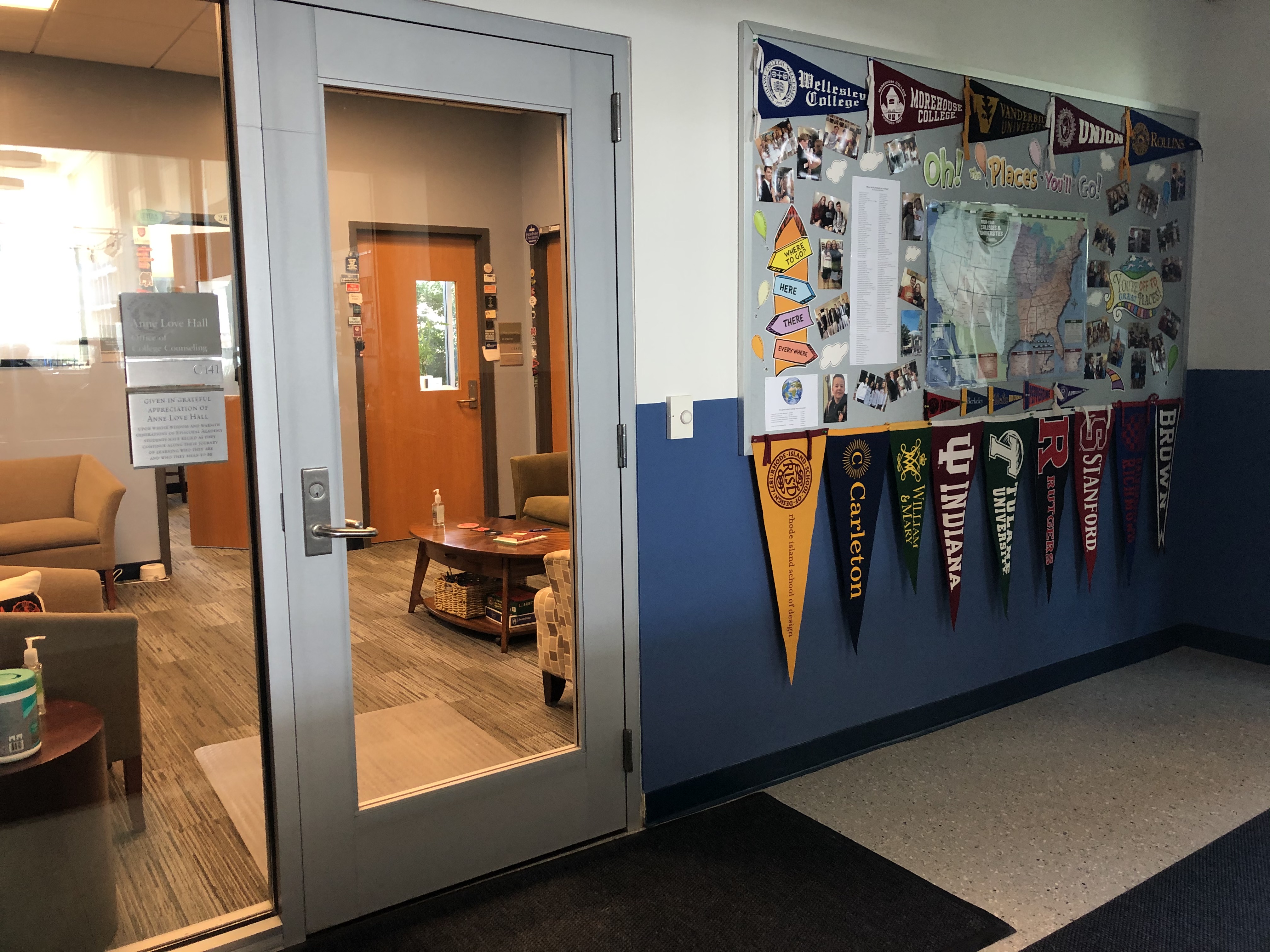Nayan Shankaran ‘24
College admissions is always a stressful process, but this year’s seniors are even more anxious due to a variety of COVID-19 pandemic related uncertainties. Students across the country are struggling to learn about colleges without campus visits, deciding whether to take standardized tests in light of new test-optional policies, and worrying if deferrals by the Class of 2020 will mean fewer spots for the Class of 2021.
Despite these concerns, the EA College Counseling Office believes that this year’s application cycle will be largely the same as in previous years — deadlines and application materials are unchanged, and the need to learn about colleges in order to create an application list remains.
Of course, there are key differences this year. The most obvious is that travel is restricted, making most in-person college visits out of reach. Students have to change the way they get to know a college, and their research must be more intentional. Fortunately, colleges have developed virtual resources for students, such as tours, informational sessions, and meetings with professors. Some colleges have become creative with their interactive sessions, such as cooking and exercise classes with professors, to give students a flavor of their community. The Director of EA College Counseling, Cynthia Crum, observes that, “The effort colleges are putting into [their virtual programming] tells you a lot about that college.”

Courtesy of Ashley Kennedy
Despite the online resources Crum references, some EA seniors are finding it difficult to get a clear sense of student life at the various colleges. “It’s hard to differentiate between schools when you can’t go and visit and get a college tour on campus, ” says Ava Petillo ‘21. Veronica Garrubbo ‘21 agrees that, virtually, it is not easy to feel the “vibe” of the campus.
Standardized testing has also become a problem, with dates constantly canceled or delayed. Alexander Zhou ‘21 shares, “I was going to take an SAT Subject Test, but it was cancelled. The uncertainty of the situation and not knowing if [the tests] are going to be cancelled was definitely stressful.” Many colleges have thus introduced test-optional policies. To help students cope with the logistical changes regarding standardized testing, the EA College Counseling Office has provided individualized guidance around how and when to send scores to colleges.
For now, the EA College Counseling Office believes that students who do not send in their test scores will not be disadvantaged, but all EA students who want to submit a standardized test score will be able to because Episcopal has offered the ACT on October 6 and the SAT on October 14, for its students only.
Because colleges will have an incomplete set of test scores across the applicant pool, they will be forced to put more emphasis on other factors when evaluating applicants, such as essays, letters of recommendation, and extracurriculars. Sarah Ireland, the Associate Director of Admissions at Skidmore College, comments, “We will see a change, but it will vary by institution.” It is possible that a long-lasting consequence of the pandemic may be the acceleration of the test-optional trend at colleges. “Some universities,” remarks Lara Grieco, the Associate Director of EA College Counseling, “are already talking about maintaining these (test optional) policies.”
Christopher Lo ‘21 believes, “[Standardized tests] are one metric by which a student can demonstrate their academic skill, one true way a student can compare themselves, and how a college can get to know a student’s academic ability.”
While the impact of deferrals for the Class of 2020 is a concern for some seniors, most colleges have not published this data. The EA College Counseling Office believes that deferrals are uncommon, and colleges may prefer to limit the number of deferrals they grant — student housing becomes complicated, the faculty may have to teach more freshman courses the subsequent year, and there may be an increased financial aid burden associated with the next freshman class.
“We are being told by colleges that [deferrals] will not impact college admission for the coming year,” shared Ms. Crum. “Colleges still have to enroll the same number of kids each year,” added Ms. Mariana Ramirez, the Associate Director of EA College Counseling, “to maintain the financial health of the institution.”
Additionally, Ireland shared that Skidmore College had twice as many deferrals as the previous year. Although the amount of deferrals from first-year students at Skidmore College increased, Ms. Ireland says that they plan to admit the same number of students this coming application season.
Not all seniors want to know what deferral rates are at the colleges to which they plan to apply. For example, Petillo believes, “I personally wouldn’t want to see that statistic because I wouldn’t want […] that to deter me from applying to a school.”
When asked about any added stress the pandemic has caused, Peter Lim ‘21 remarked, “I don’t have any comparison, but it is stressful applying to college and learning about them virtually. It’s an interesting year for everyone, and there is no telling how it will go for another few months.”
“The application process,” Crum concludes, “[…] is filled with a lot of uncertainty and COVID has just added more to it.” However, the EA College Counseling Office wants students to remember that “we are here to be your champions, help you, and support you.” They maintain Twitter and Facebook pages, where information about colleges and the application process is shared on a daily basis. The EA College Counseling Office hopes that the Class of 2021 feels assured that they are as prepared for the application cycle as they can be during this unpredictable and unprecedented time.